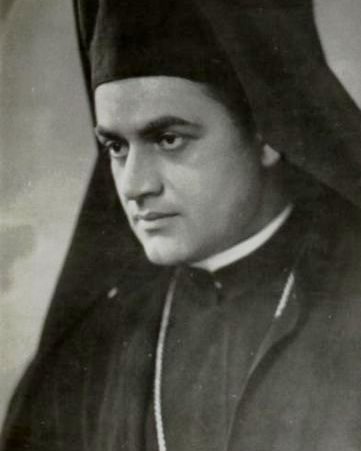

|
The Kartvelologist The Kartvelologist” is a bilingual (Georgian and English) peer-reviewed, academic journal, covering all spheres of Kartvelological scholarship. Along with introducing scholarly novelties in Georgian Studies, it aims at popularization of essays of Georgian researchers on the international level and diffusion of foreign Kartvelological scholarship in Georgian scholarly circles. “The Kartvelologist” issues both in printed and electronic form. In 1993-2009 it came out only in printed form (#1-15). The publisher is the “Centre for Kartvelian Studies” (TSU), financially supported by the “Fund of the Kartvelological School”. In 2011-2013 the journal is financed by Shota Rustaveli National Science Foundation. |
Questions about the Origin of the Translation of the Georgian Bible
Georgian Christian culture – literary culture, literary language, conceptual system, literary form, etc. originate from the translation of the Bible. Hence, knowledge of from which language, where, in what circle and when was the Bible translated into Georgian will by itself allow us to shed light on many general and concrete questions in the sphere of religion, culture, history of language and philology. Study of the Georgian Bible from the philological viewpoint obviously begins with the origin of the translation. Otherwise, it is absolutely impossible to determine the text of the Bible, research into the history of the text, discussion of the character of the translation(s) and exegetic or any other type of commentary.
keywords:Georgian Christian culture, he Origin of the Translation of the Georgian Bible, Category: SCHOLARLY STUDIES Authors: Tamar Barbakadze Questions on the Georgian translation of the Acts of the Apostles
Without claiming to answer the question of knowing from which language, Greek or Armenian, was translated the text of the Acts of the Apostles into Georgian, I would just draw attention to few linguistic events noted during a comparative reading of the Acts in its three variants – Greek, Georgian and Armenian. Three points will be discussed here; the first two involve the Georgian and Armenian versions of the Acts, the third one involve the Georgian and Greek texts. keywords: Category: SCHOLARLY STUDIES Authors: Tamar Barbakadze Which langauge has the Georgian Acts of the Apostles been translated from?
The provenance of the Georgian biblical text today too remains one of the cardinal issues of Georgian studies. Many Georgian and foreign researchers have dealt with the question of from which language the oldest Georgian recensions of the biblical books were translated. The research was conducted not in a complex way but involved separate books or recensions. In European Oriental Studies, and partly in Georgian Philological circles the idea became gradually popular which, on the basis of an analysis of concrete sources carried out by N. Marr, I. Molitor, R. Blake and others considers the Armenian trace to be a revision of the subsequent period. This idea is based on the view held in Medieval Georgia, facts of the earliest theological – philosophical terminology, the most recent philological analusis of the khanmeti fragments of biblical texts, the evidence of the historical process of Armenian-Georgian ecclesiastical and cultural relation. Bernard Outtier’s present essay deals with this issue. In particular, it gives a critique of the view on the Armenian provenance of the oldest Georgian recension of the Acts of the Apostles and concludes: “the idea of Prof. Garitte widely agreed upon in Western Europe that the Georgian Acts of the Apostles was translated from the Armenian, does not seen true”.
keywords: Acts of the Apostles, G. Garitte Category: SCHOLARLY STUDIES Authors: Tamar Barbakadze Georgian Scholar Grigol Peradze – Student of the University of Berlin
keywords:Grigol Peradze Category: CHRONICLE OF EVENTS Authors: Tamar Barbakadze
KARTVELOLOGICAL STUDIES IN POLAND (1920-2011)
The review of the development of Polish kartvelology, that I am going to present you in a moment, will not be a full exploitation of the subject. It is simply impossible. In fact, the bibliography of works relating to Georgia is still incomplete. In order to obtain a more comprehensive picture we still need a long-lasting study. Nevertheless, I can present the basic lines of development and achievements of Polish kartvelology, focusing on key issues.
keywords: Category: CHRONICLE OF EVENTS Authors: Tamar Barbakadze |
Categories Journal Archive |



